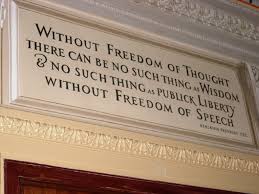Autism and political correctness

April 25, 2016
Before I begin explaining why I find political correctness to be a poisonous concept, especially toward people on the autism spectrum, I need to mention that I am on the Asperger’s syndrome end of the autism spectrum and I’m also gay, but I do not speak for everyone on the spectrum or everyone in the LGBT community.
One of the common symptoms of autism, specifically on the higher functioning end of the spectrum, is the inability to infer the thoughts, feelings, or emotions of others, according to MedicineNet, an online encyclopedia.
This makes being politically correct much more difficult for autistic people because if they can’t infer the feeling or emotions of others, it’s very difficult for them to understand how they offended someone and how not to offend others.
Several social movements that fall under the political correctness banner, advocate for steep punishments for offensive speech, which range from expulsion from a college to losing a job, so if you lack the capacity to understand or at least infer how something is offensive, if those movements get their way, then as an autistic individual, you will be punished for your neurological condition.
It doesn’t help that many individuals on the spectrum, have the symptom of “lack of social awareness,” which means that as an autistic person, I am not often aware of the nuances of social interaction.
People on the spectrum already have “difficulty making and maintaining friendships,” without the potential for being hated by others for asking questions and sharing views deemed politically incorrect at the time.
Being “unusually sensitive to noises, touch, odors, tastes, or visual stimuli,” autistic persons, like me, find it hard not to notice things others seems to dismiss, which combined with the symptom of “failure to respect interpersonal boundaries,” can find autistic people unintentionally offending transgender people with invasive questions.
The backlash from those questions, due to the aforementioned sensitivity to noises like yelling, crying and screaming, can lead to a very intense response of retreating or shaming the individual for the very thing the autistic person was curious about.
Yes, through speech therapy and social skills training, a person on the spectrum can develop a semblance of normal speech patterns and develop social skills, but a person on the spectrum will always struggle with the nuances of interaction.
We, as people on the spectrum should not be punished for our very existence, and policies based on political correctness and self-censorship are an injustice not just to people like me, but to everyone who came to college for the right reasons, to learn and exchange ideas, with their fellow human beings.
Political correctness has no place in a university environment, where being exposed to new ideas and information is the entire purpose of being there. It especially has no place when there are people on this earth who are neurologically incapable for catering to other people’s sensitivities.

